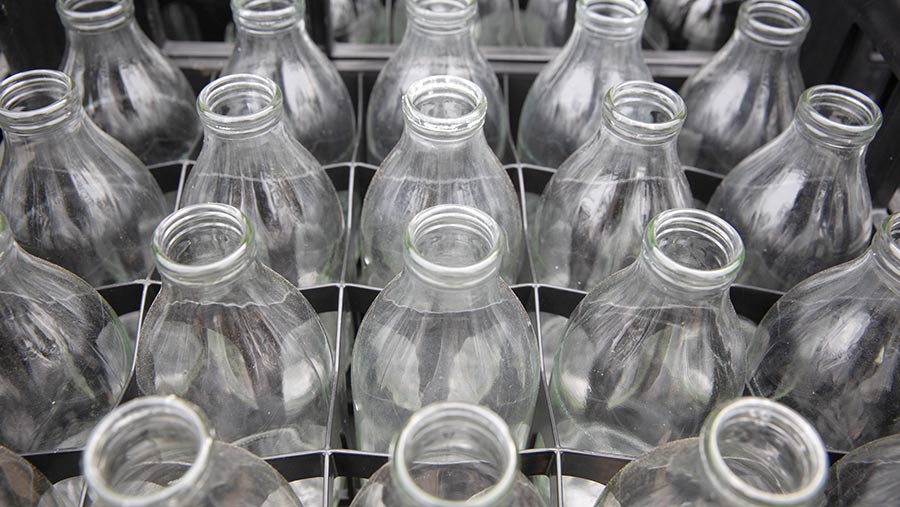The effect of a hard Brexit on the UK dairy industry
 © Tim Scrivener
© Tim Scrivener We shouldn’t underestimate the financial shock that a hard Brexit could cause to our industry, says Kite Consulting’s John Allen.
A hard Brexit would result in no trade agreements and, for a short while at least, we could be faced with a challenging situation where we have virtually no import tariffs on foodstuffs entering the country, but have significant tariffs on goods being exported.
One thing any government will want to avoid is any kind of food shortages, so it is unlikely that import tariffs will be applied on any food goods entering the country from the EU.
Currently, half of the UK’s food is imported, with about 30% coming from the EU.
See also: Is herd expansion the answer to dairy profitability? The options assessed
This means we could find ourselves in the unenviable position of having cheap dairy products entering the country while we are unable to take advantage of a weakened pound fuelling European demand for UK-produced dairy goods, because tariffs are being imposed on our exports.
Price reductions
I can see a point where this will lead to price reductions for UK dairy producers.
The issue we have with dairy, unlike the arable sector for example, is that dairy farmers and processors can’t choose to store or hold on to product while the political and economic situation ‘sort itself out.’
Milk needs to leave the farm on a daily basis and processors need to find a home for it to go to on a similar time scale.
UK dairy businesses will need to think about creating some sort of financial shock absorbers to help manage milk price falls.
Banks may also not be as ready to lend to farmers as they have been in the past, so we can’t rely on them to help us during the challenging years ahead – though they may come under pressure to do so from a government that has propped banks up in the past.
Export opportunities
A hard Brexit will lead to a weakened currency, which should open up export opportunities, but it will take time to develop these and resolve any tariff arrangements.
However, resilient UK farmers are in a good place to take advantage of these potential export opportunities, having had to learn to manage in a volatile milk market in the past decade or so.
When we look around the world, and compare our industry to those in other countries, it is clear the UK dairy industry has a lot to offer; a climate suited to forage production, a strong record on animal health and welfare, excellent provenance and a reputation for food safety.
The UK is an attractive source for high-quality dairy products. The UK dairy export market has been grown by more than 10%.
While the Brexit outcome still remains unclear, what is clear is that UK dairy farmers need to plan for what could be a significant financial shock if a no-deal Brexit does take place.
